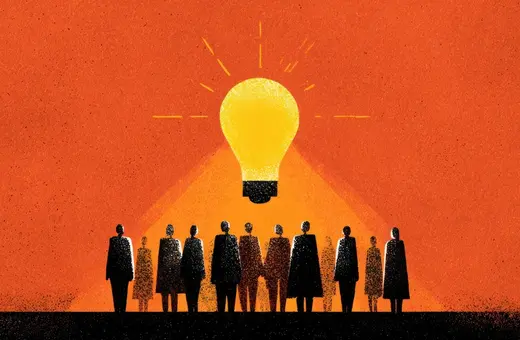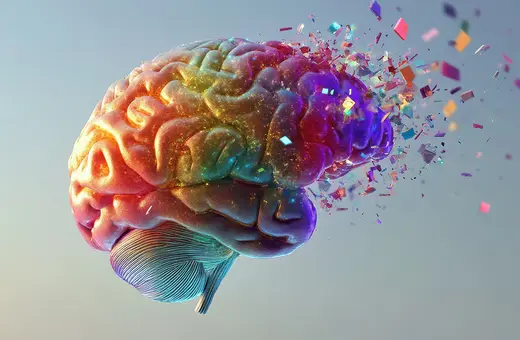The problem of consciousness hangs over both science and philosophy like a bad smell. Nobody is sure what to do with it. The problem of consciousness makes everything uncertain and unclear. In this article, Riccardo Manzotti offers us an ingeniously simple solution to this problem. So simple it becomes almost unintuitive. But possibly, this is exactly what we have needed to finally get to grips with consciousness.
Einstein claimed that when “the consistent use of traditional fundamental concepts leads us to paradoxes difficult to resolve […] it is necessary over and over again to engage in a critique of fundamental concepts, in order that we may not unconsciously be ruled by them”. The problem of consciousness falls precisely in this category. From the pioneering studies of Hermann von Helmholtz, more than 150 years ago, to the recent works of Anil Seth, Giulio Tononi, Christof Koch, neuroscientists have been trying to find something that resembles consciousness inside the nervous system; so far they have always failed to address the key issue: how can a brain experience something that the brain is not. The neural evidence they have observed never amounts to more than correlations. The nervous system is home to all kinds of interesting phenomena, but no consciousness has been found. In fact, the more we know about what goes on in the brain, the less space remains to find anything unexpected.
To cope with this discouraging situation, existing theories of consciousness have put forward various ad hoc hypotheses (IIT, quantum-based theories, emergent properties, panpsychism, illusionism) that simply shift the mystery elsewhere. In the spirit of Einstein’s remark, it is time to take a step back in order to move forward. This is precisely what the mind-object identity hypothesis (MOI) sets out to do. It is a radically physicalist hypothesis that proposes to locate consciousness without adding to or changing our scientific view of reality. If anything, it requires us to set aside the remnants of naïve naturalism that still haunt so much of consciousness research and start taking seriously what physics tells us.
___
Ever since Plato and more forcefully Descartes, we have conceived the matter thus: I am in here and the world is out there because I am separate from the world
___
Let’s start with the basics. At this precise moment, there is something in the physical world which is identical with you. As to what that something is in your case, I can only make educated guesses. However, I can reasonably assume that, if we start with perception, there will be a world of things that very likely includes a laptop, a room, a window, a desk, maybe a purple mug containing hot coffee. This is a physical subset of the physical world. So far, so good. No mystery yet. However, ever since Plato and more forcefully Descartes, we have conceived the matter thus: I am in here and the world is out there because I am separate from the world. This way of conceiving the matter produces a mystery. How can the world be present here as a part of me, while continuing to be out there? All solutions have invariably suggested that the subject must have some form of superpower, called consciousness (or aboutness, or representations, or mental images) which is the capacity, that is, to present the world inside the self (be it a body, a mind, or a soul) leaving the world outside.
As soon as we posit this pseudo-solution to what I will show is a pseudo-problem, consciousness becomes an unsolvable conundrum.
The Solution




















Join the conversation